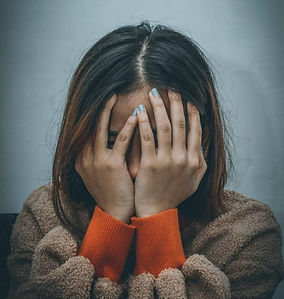"Living with bipolar means learning to ride the waves, not letting them drown you."
Psychiatry for Bipolar Disorder Can Improve:
-
Mood stability – Helps manage and reduce extreme highs (mania) and lows (depression).
-
Medication management – Supports finding and adjusting the right treatment plan.
-
Insight and awareness – Teaches how to recognize early warning signs of mood changes.
-
Daily functioning – Makes it easier to handle work, school, and relationships.

What is Bipolar Disorder? Bipolar disorder is a condition where your mood can swing between really high and really low. During the “highs” (called mania or hypomania), you might feel super energetic, talkative, or like your mind is racing. During the “lows,” you might feel really sad, tired, or unmotivated, even when there’s no clear reason. These changes can be tough, but you’re not alone—and there’s help. With the right treatment, like medication and support from a mental health provider, it’s absolutely possible to feel more balanced and in control.
Can Psychiatry Help with Bipolar Disorder? Yes—it can make a big difference. Psychiatrists are trained to understand and treat bipolar disorder. They can help you figure out what type of bipolar you have, prescribe the right medications to balance your mood, and work with you to manage symptoms over time. Psychiatry also supports you in recognizing early warning signs of mood shifts, building healthy routines, and connecting you with therapy or other resources. With consistent care, many people with bipolar disorder are able to lead stable, fulfilling lives.
A Reflection of a Deeper Problem
Extreme Mood Swings
People with bipolar disorder experience significant mood changes that are much stronger than normal ups and downs. These shifts can move from very high energy and excitement (mania or hypomania) to very low feelings of sadness or hopelessness (depression), sometimes quickly or over days to weeks.

Manic or Hypomanic Symptoms
During manic episodes, you might feel unusually happy, full of energy, or overly confident. Your thoughts may race, and you might talk faster than usual. You may sleep less without feeling tired and take risks you wouldn’t normally take, like spending a lot of money, driving recklessly, or making impulsive decisions. Hypomania is a milder form of mania but still affects mood and behavior.

Depressive Symptoms
When feeling depressed, you may experience deep sadness, fatigue, and loss of interest in activities you used to enjoy. Concentration can be difficult, and you might have trouble making decisions. Sleep patterns can change—you may sleep too much or have insomnia—and appetite might increase or decrease. Feelings of hopelessness or thoughts about death or suicide can also occur.

Impact on Daily Life and Functioning
These mood episodes can interfere with your ability to work, study, or maintain relationships. During manic phases, impulsive behaviors may cause conflicts or risky situations. During depressive phases, lack of energy and motivation can make even simple tasks feel overwhelming.


